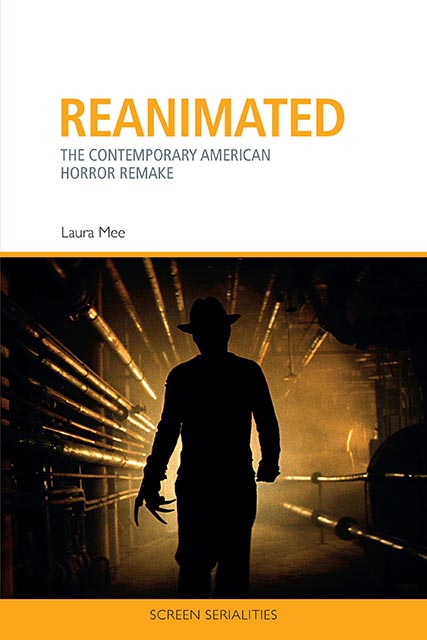Book contents
- Frontmatter
- Contents
- List of Figures
- Acknowledgements
- Chapter 1 Horror Reanimated: The Rise of the Remake
- Chapter 2 Defining and Defending the Horror Remake
- Chapter 3 Re-Writing Horror Mythology in the Platinum Dunes Reboot
- Chapter 4 Distinction and Difference in the Slasher Remake
- Chapter 5 Cultural Anxieties and Ambiguities in Post-9/11 Remakes
- Chapter 6 Gender and Genre in the Rape-Revenge Remake
- Conclusion. ‘The Devil Never Dies’: Recent Horror Remakes
- Bibliography
- Films and Television Programmes
- Index
Chapter 2 - Defining and Defending the Horror Remake
Published online by Cambridge University Press: 10 August 2023
- Frontmatter
- Contents
- List of Figures
- Acknowledgements
- Chapter 1 Horror Reanimated: The Rise of the Remake
- Chapter 2 Defining and Defending the Horror Remake
- Chapter 3 Re-Writing Horror Mythology in the Platinum Dunes Reboot
- Chapter 4 Distinction and Difference in the Slasher Remake
- Chapter 5 Cultural Anxieties and Ambiguities in Post-9/11 Remakes
- Chapter 6 Gender and Genre in the Rape-Revenge Remake
- Conclusion. ‘The Devil Never Dies’: Recent Horror Remakes
- Bibliography
- Films and Television Programmes
- Index
Summary
Before moving on to consider case-studies of horror remake cycles – such as franchise reboots, slashers, 1970s horror remakes and rape-revenge – there are several theoretical debates around remaking that warrant further discussion. These various remakes made valid contributions to the genre's evolution in the 2000s and deserve serious analysis. However, the critical tendency to emphasise the relationship between a remake and its source prevails, and it is important to first address why, as well as why this focus is unproductive. This chapter aligns the film remake (and the remaking process) with other contemporary forms of adaptation. Understanding remaking as part of a much wider practice of cultural recycling and interrogating issues of definition, categorisation and fidelity is essential before we can consider how and why the horror remake flourished and how audiences might make sense of the trend and the films it produced.
Even as remakes proliferated in the early 2000s, they were mentioned only perfunctorily in adaptation studies, in attempts to exhaustively list the many possibilities for textual repetition and recycling. For every approach that acknowledged, albeit only in passing, the remake as a mode of adaptation (see, for instance, Hutcheon 2006: 170), other studies contested remaking as ‘proper’ adaptation, citing differences in approaches to retelling, or the commercial motivations for their production. Perhaps its omission was not deliberate, but its exclusion speaks volumes:
Adaptation theory by now has available a well-stocked archive of tropes and concepts to account for the mutation of forms across media: adaptation as reading, rewriting, critique, translation, transmutation, metamorphosis, recreation, transvocalization, resuscitation, transfiguration, actualization, transmodalization, signifying, performance, dialogization, cannibalization, reinvisioning, incarnation or reaccentuation (the words with the prefix ‘trans’ emphasise the changes brought about in the adaptation, while those beginning with the prefix ‘re’ emphasise the recombinant function of adaptation). (Stam 2005: 25, my emphasis)
Stam's inclusion of terms such as ‘rewriting’, ‘recreation’ and ‘reinvisioning’ leaves the exclusion of ‘remaking’ glaringly clear, and his distinction that adaptation takes place across media is telling. Remaking as a specifically film-to-film process – rather than a novel-to-film, comic-to-film, game-to-film or even theme-park-ride-to-film process – seems to be a particular sticking point; the format of the source prevents remaking from being understood and appreciated as adaptation. Yet there is no finite reason why changes must occur across media in order for texts to be adaptive.
- Type
- Chapter
- Information
- ReanimatedThe Contemporary American Horror Remake, pp. 21 - 45Publisher: Edinburgh University PressPrint publication year: 2022



